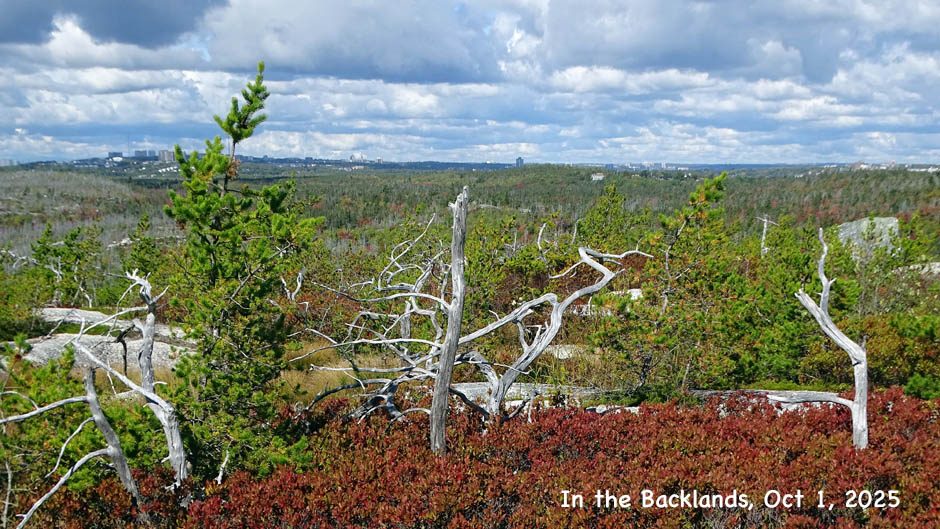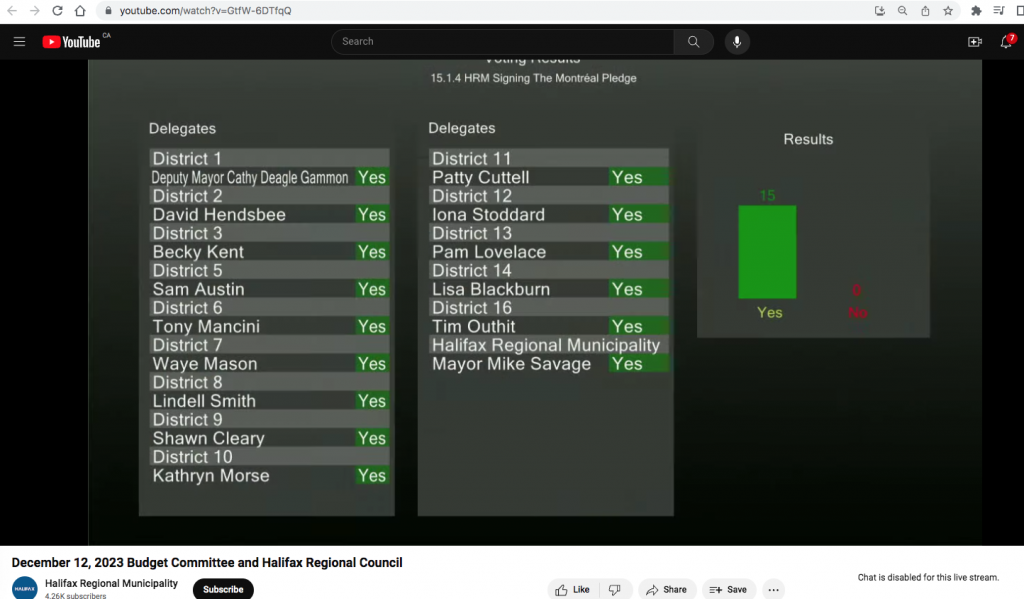 It’s item No 15.1.4 on the Agenda for today (Dec 12, 2023)
It’s item No 15.1.4 on the Agenda for today (Dec 12, 2023)
Motion:
That Halifax Regional Council:
1. Suspend the rules of procedure under Schedule 5, the Environment and Sustainability Standing Committee Terms of Reference, of Administrative Order One, the Procedures of the Council Administrative Order;
2. Direct the Mayor to write a letter of support to the City of Montreal for Halifax Regional Municipality to become a signatory of The Montréal Pledge.
View Details.
| Some Extracts:
As host city to COP15 (Fifteenth meeting of the COP to the CBD), the mayor of Montréal issued a challenge to cities across the world to make a commitment to protecting biodiversity, known as The Montréal Pledge. Specifically, the challenge invites cities to commit to 15 tangible actions towards pursuing and accelerating their efforts to preserve ecosystems and biodiversity in their region. Signatory cities of the Montréal Pledge are expected to demonstrate leadership and to act swiftly in order to protect biodiversity. Currently, 61 major cities from across the world have already committed to the Montréal Pledge, including Paris, France; London, United Kingdom; Berlin, Germany; Sydney, Australia; Buenos Aires, Argentina; and Boston, USA, among many others. Many Canadian cities have also signed the pledge including Windsor, Ontario; Vancouver, British Columbia; Toronto, Ontario; and, of course, Montréal, Québec. As of yet, there are no cities in Nova Scotia that are signatories to The Montréal Pledge. Becoming a Signatory to The Montréal Pledge To become a signatory to The Montréal Pledge requires either an official letter from the Mayor or the adoption of a city council resolution to this effect. Signatories are asked to commit to the following 15 tangible actions: Reducing Threats to Biodiversity Sharing the Benefits of Biodiversity Solutions, Governance, Management and Education After becoming signatories, cities are invited to voluntarily track their progress towards the 15 Pledge commitments by registering and using the ‘CitiesWithNature’ Action Platform.2 ‘CitiesWithNature’ is recognized by the CBD in its Plan of Action on Subnational Governments, Cities and Other Local Authorities for Biodiversity (2021-2030)3 as the place where cities should monitor and report on their voluntary commitments. Currently, there are 20 participating cities worldwide who are registered on ‘CitiesWithNature’ Action Platform, compared to the 61 signatories of the Montréal Pledge. Staff do not intend to register for this platform as it would be redundant to HRM’s current tracking requirements for HalifACT and the Halifax Green Network plan. |
Attachment 1 in the Details Document provides a summary of existing HRM initiatives that address one or more of the 15 Montréal Pledge commitments.
The Halifax Green Network Plan figures prominently in that listing. Let’s hope our provincial government is fully supportive!
UPDATE. Tuesday pm: Motion passed unanimously

